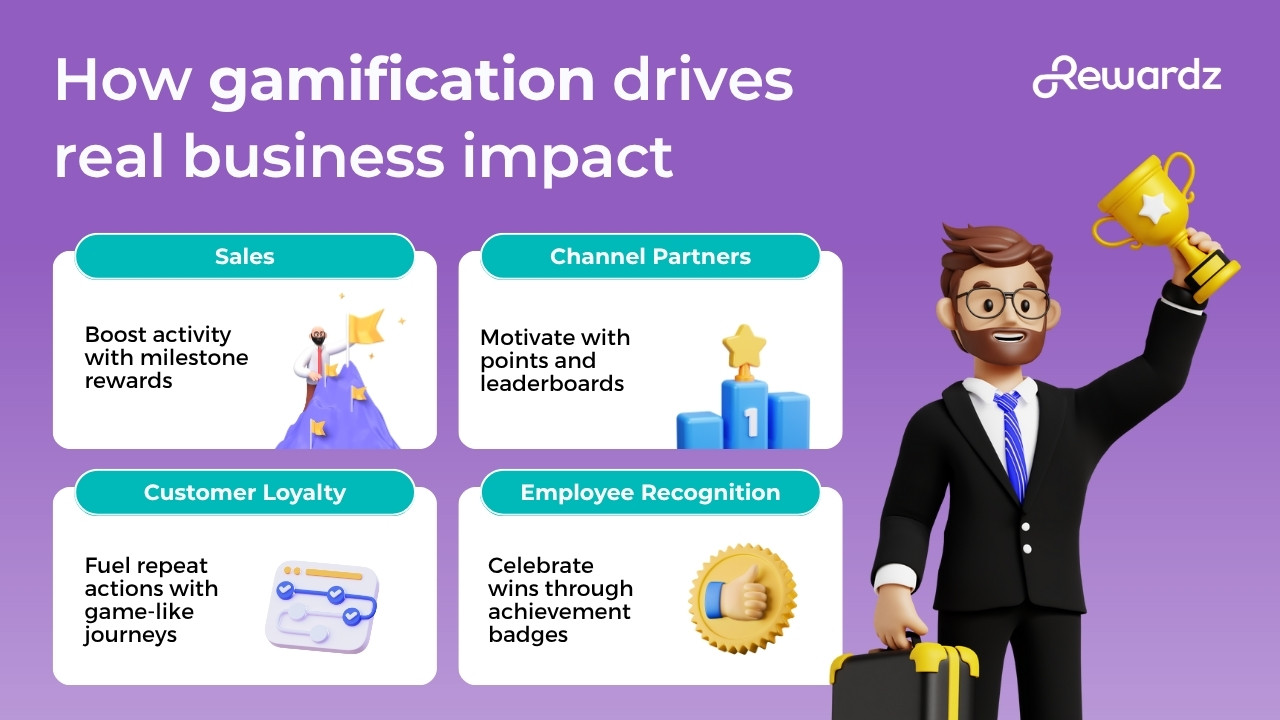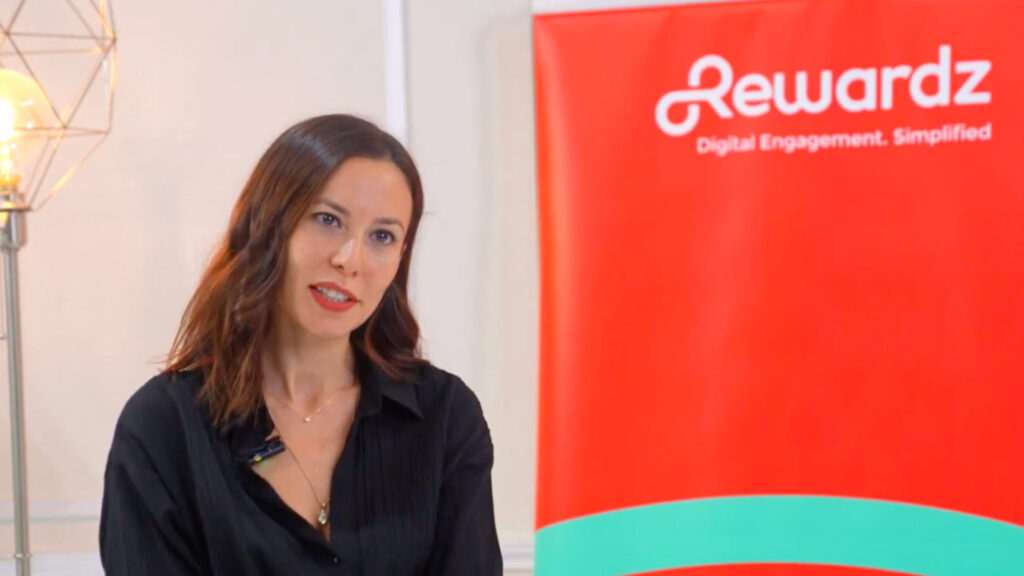What makes a game so addictive? Can business tap into that magic?
Think of the last time you were hooked on a game. Whether it was earning stars in a mobile app or tracking your step count to hit a fitness goal, chances are a few psychological triggers kept you coming back. Now imagine if enterprise sales teams, employees, or even customers felt the same motivation toward your business goals.
That’s the promise of gamification. Not just playing for fun, but applying behavioural psychology to shape actions, build habits, and drive tangible results. At Rewardz, we believe when done right, gamification becomes a strategic lever for boosting performance and engagement across sales, HR, and customer loyalty initiatives.
The Psychology at Play: Why Gamification Works
1. The Dopamine Effect: Instant Gratification Reinforces Action
When users complete a task and receive an immediate reward—points, badges, progress bars—the brain releases dopamine, a “feel-good” neurotransmitter. This intrinsic reinforcement builds habit loops that keep users engaged (Playmotiv).
2. Goal Gradient Effect: Motivation Builds with Visible Progress
According to behavioural economist Clark Hull, people accelerate effort as they get closer to a goal. Leaderboards, streak counters, and level-based challenges capitalise on this effect to maintain momentum and motivation (Journal of Marketing Research).
3. Autonomy and Mastery: Gamification Feeds Inner Drive
As outlined in Self-Determination Theory, people are driven by autonomy, mastery, and purpose. Gamified systems that allow users to choose paths, unlock new challenges, and see their skills improve help sustain long-term engagement.
4. Social Influence: Recognition and Peer Dynamics Drive Participation
Whether it’s peer recognition through badges or competition via scoreboards, gamification leverages our need for social validation. Public wins often become contagious, creating viral cycles of participation (Influence: The Psychology of Persuasion).
From Psychology to Business Impact
Gamification isn’t just theory, it delivers real value when paired with measurable outcomes. Here’s how businesses can benefit:
-
Sales Teams: Increase activity rates and deal closures by rewarding sales reps with tiered achievements and milestones.
-
Channel Engagement: Motivate partners or resellers with points, unlockable rewards, and competitive leaderboards.
-
Customer Loyalty: Encourage repeat purchases, referrals, and engagement through gamified journeys and incentive programmes.
-
Employee Recognition: Turn peer-to-peer recognition into an achievement-based ecosystem where kudos and milestones are celebrated.
How Rewardz Powers Gamification with Purpose
At Rewardz, we combine behavioural psychology with cutting-edge Rewards-as-a-Service technology. Our solution allows enterprises to design gamified experiences that align with key business objectives, whether it’s increasing channel partner activity or embedding a culture of recognition.
Our clients use badges, progress tracking, and leaderboards to drive behaviour change across diverse audiences. But the secret sauce? Every game element is backed by real rewards—customisable, relevant, and meaningful across cultures and generations.
Final Thought: The Science of Play Is Serious Business
Gamification isn’t a gimmick, it’s a strategy rooted in science. When grounded in psychological principles and powered by the right platform, it transforms how businesses inspire action, build loyalty, and celebrate performance.
In a world where attention is scarce and motivation is fragile, gamification offers a proven path to deeper, more meaningful engagement.
Ready to turn motivation into momentum? Contact us to see how Rewardz can help you design gamified experiences that drive results.




